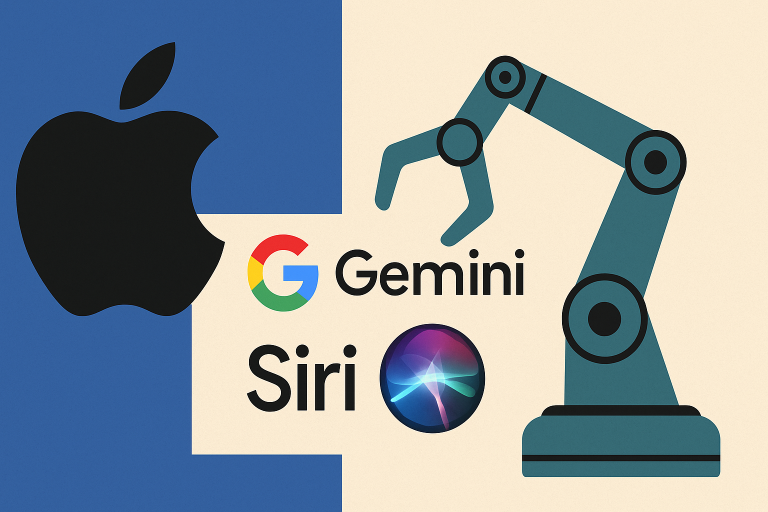Apple is rebuilding Siri, and this time it is bringing in outside help. The company is finalising a deal to pay Google around $1 billion annually to use its Gemini AI model.
The 1.2 trillion-parameter system will power core features of a new version of Siri that is expected to launch in 2026.
Mark Gurman, a Bloomberg journalist, shared on Twitter:
NEW: Apple is planning to use a custom 1.2 trillion parameter Google Gemini model to help power the new Siri next year. The iPhone maker will be paying the search giant roughly $1 billion annually for it. Details on the partnership here bloomberg.com/news/articles/…
3.0K
Reply
Copy link
Apple selected Gemini after testing competing models, including OpenAI’s ChatGPT and Anthropic’s Claude.
The company will continue using some of its in-house AI models, but Gemini will support key Siri components such as its summarisation and planning features.
These features allow Siri to interpret context and respond to more complex tasks.
Gemini will operate on Apple’s Private Cloud Compute infrastructure. This ensures user data remains under Apple’s control rather than being processed on Google’s servers.
Why Apple chose Google’s Gemini
Gemini is significantly more advanced than the model currently used in Siri’s cloud services. Apple’s existing model contains 150 billion parameters.
By comparison, Gemini has 1.2 trillion. This means it can handle larger data sets, better understand user requests, and deliver more accurate responses.
Long-time Apple analyst John Gruber supported the move in his Daring Fireball post on 6 November. He wrote:
If they can work out a deal to use models from Google because those models are technically superior to Apple’s own, they should.
As early as August 2025, Apple was in active talks to license Google’s Gemini model for an updated Siri, hinting that the deal was already in motion well before public confirmation.
Analyst Shelly Palmer wrote:
After more than a decade of living in last place among voice assistants, Siri is about to borrow someone else’s brain.
His view reflects the general consensus that Siri has struggled to keep up with AI innovation from rivals.
What to expect next
Apple plans to launch the new Siri in spring 2026 alongside iOS 26.4. Internally, the assistant is referred to as Linwood.
The broader effort to rebuild Apple’s AI systems is called Glenwood and is led by Mike Rockwell and Craig Federighi.
Apple has already allocated AI server hardware to support Gemini’s operation.
While this deal with Google is substantial, it is not permanent. Apple is developing its own large-scale model with about one trillion parameters. If that model meets internal targets, it could eventually replace Gemini.
Mark Gurman added in his Bloomberg Power On newsletter:
There’s no guarantee users will embrace it, that it will work seamlessly, or that it can undo years of damage to the Siri brand.
A quiet shift with major impact
Despite the size of the deal, Apple is unlikely to promote its partnership with Google.
Unlike its well-known agreement to make Google the default search engine in Safari, this collaboration will operate behind the scenes.
Siri will still appear to be fully Apple-owned to users.
The agreement does not include Gemini as a Siri chatbot or integrating Google AI search into Apple systems. Previous discussions on those features stalled earlier this year.
This deal reflects a pragmatic shift for Apple. After years of building AI tools internally, the company is now willing to source best-in-class technology to deliver a better user experience.
It is a clear acknowledgement that Siri needs a reboot, and Apple cannot wait for its own models to catch up.
The post Apple’s $1B bet on Gemini: why Siri makeover is a turning point in big tech AI appeared first on Invezz

